Do you have a raccoon problem? Are they pooping in your yard and causing a mess? If so, don’t worry, you’re not alone. Raccoons can be very pesky creatures and can cause a lot of damage. In this article, we will discuss some common methods that people use to try and stop raccoons from pooping in their yards. We will also provide some tips on how to deter them from coming back. Let’s get started!
Raccoons and Their Behavior
There are a few things you should know about raccoons before we get into how to stop them from pooping in your yard.
They’re also excellent climbers, which is why they often find their way onto roofs and into chimneys. And finally, raccoons are very curious creatures by nature. So, if there’s something new in their environment (like a pile of fresh mulch in your garden), they’ll likely want to check it out.

Raccoons are omnivores, which means they will eat both plants and animals. Their diet consists mostly of invertebrates, fruits, nuts, and berries. However, they will also eat small mammals such as rodents or rabbits if the opportunity presents itself.
Raccoons are intelligent and curious creatures, but their mischievous nature often gets them into trouble. One of the biggest problems that homeowners face with raccoons is that they will use your yard as their personal toilet. Not only is this a nuisance, but it can also be a health hazard for you and your family. [1] [2] [3]
How Can Raccoons Harm My Yard
Raccoons can harm your yard in a number of ways. One is by digging through the soil looking for grubs and other insects to eat. This can uproot grass and damage plants. They also may tear open trash bags in search of food, scattering garbage around the yard. And, as their name suggests, raccoons often defecate in yards, leaving behind unsightly and potentially harmful feces.
Feces from raccoons can contain a number of parasites and diseases that are harmful to humans and pets, including roundworm and leptospirosis. In addition, because raccoons often eat garbage, their feces can also contain harmful bacteria that can cause food poisoning. Finally, raccoon feces can attract other pests, such as flies, that can spread disease. [2] [3] [4]
How to Prevent Raccoons From Pooping in the Yard?
Luckily, there are a number of things you can do to prevent raccoons from pooping in your yard. In this section, we’ll go over a few of the most effective methods. Obviously, to prevent raccoons from pooping in your garden, you will need to figure out how they are getting into your yard in the first place. Once you have determined that, you can take steps to prevent their access.
Eliminate any entry points
The first step is to make sure that raccoons can’t get into your yard in the first place. Start by inspecting your property for any potential entry points, such as holes in fences or gaps under decks. If you find any, seal them up with hardware cloth, chicken wire, or another type of fencing material.
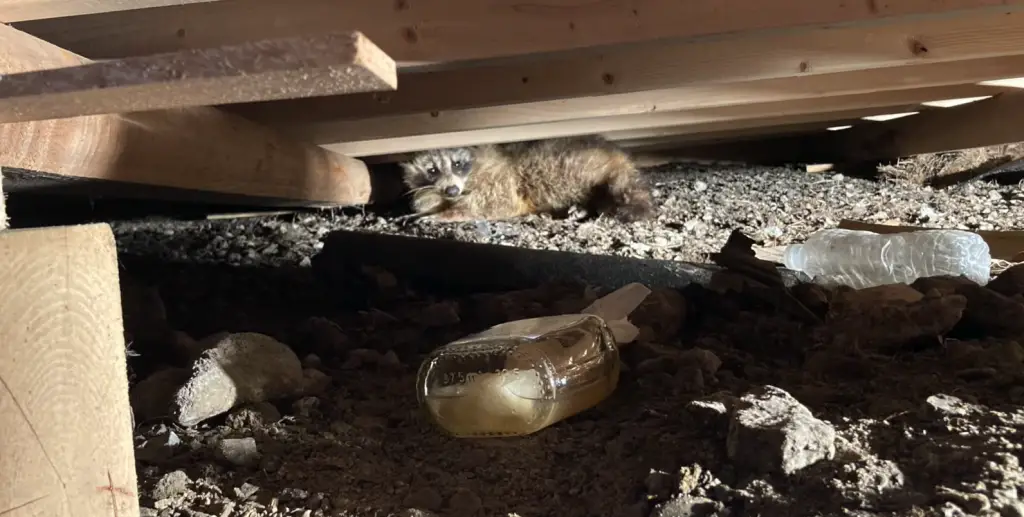
You should also inspect your home’s foundation and roofline for any cracks or holes that raccoons could use to get inside. If you find any, seal them up with caulk or another type of repair material.
By making it difficult for raccoons to get into your yard, you can reduce the chances of them using it as their personal toilet. [1] [2] [4]
Use gadgets to scare raccoons away
One of the simplest ways to keep raccoons out of your yard is to use a motion-activated sprinkler. These devices are triggered by movement, and when activated, will emit a short burst of water. The sudden noise and movement will startle raccoons, and after a few times, they’ll learn to stay away from the area.
You can also use a motion-activated light to deter raccoons. These lights will turn on whenever there’s movement in the area, flooding the area with light and again startle raccoons. Over time, they’ll learn to avoid areas that are well-lit at night.
There are also commercial products available that emit high-frequency sounds that only animals can hear. These devices can be effective at deterring raccoons but should be used sparingly as the constant noise can also be disruptive to humans. [1] [2] [4]
Try natural repellents
An easy way to keep raccoons away from your property is to use natural repellents. There are a number of different recipes for homemade repellents that you can find online. Many of these use ingredients that you probably already have in your kitchens, such as vinegar, garlic, and chili peppers.
Spices
One such home remedy is to sprinkle your garden with chili peppers. Raccoons don’t like the smell of chili peppers, so this will deter them from returning to the area. You can also make a repellent by mixing garlic, water, and vinegar in a spray bottle. This mixture will repel raccoons (and other animals) with its strong scent.
Just be sure to reapply these repellents after it rains or if the area gets wet for any other reason.
Mothballs
Some people use mothballs to try to keep raccoons away from their property. However, this is not an effective method for deterring raccoons. In fact, using mothballs can be dangerous to both humans and animals.
Commercial repellent
Another option is to purchase a commercial repellent at your local hardware or garden store. These products usually contain predator urine or other scent-based deterrents that will help keep raccoons away.
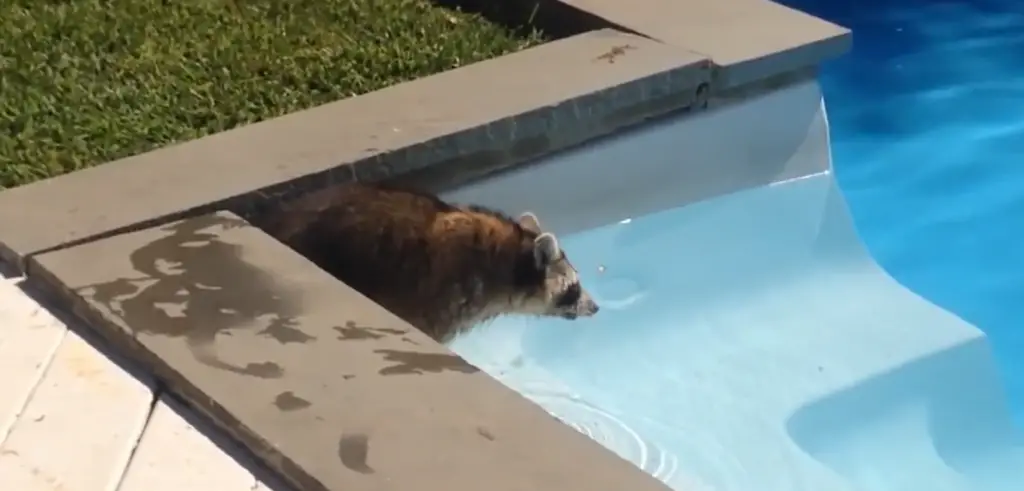
Just be sure to follow the directions on the package carefully, as some of these products can be harmful to plants and animals if used improperly. [1] [2] [4] [5]
Dispose of trash securely
One of the main reasons raccoons visit yards is to rummage through trash cans in search of food. If you want to prevent raccoons from pooping in your yard, make sure to dispose of your trash securely. You should also keep your trash can as far away from your house as possible. Raccoons are attracted to the smell of food, so if the trash can is close to the house, they’ll be more likely to investigate. Finally, don’t forget to empty the trash can on a regular basis. The less time there is between garbage pickups, the less likely it is that raccoons will be able to find food in the cans.
Invest in a heavy-duty trash can with a tight-fitting lid, and keep it stored in a shed or garage when not in use. If possible, empty your trash can regularly so that it doesn’t attract attention from raccoons or other animals. [1] [2] [4]
Don’t leave pet bowls outside
If you leave pet bowls outside, raccoons will often help themselves to the food. This can attract them to your property and increase the chances that they’ll poop in your yard.
To avoid this, simply bring pet bowls inside at night. This will also protect your pets from other animals, like coyotes.
Even if you let your pets outside during the day, bring their bowls inside as soon as they’re done eating. [1] [2] [3] [4]
Try using animal hair
You might never consider this, but using animal hair is one of the simplest ways to deter raccoons. Raccoons have a strong sense of smell and they don’t like the smell of certain animals, such as dogs and cats. So, scattering dog or cat hair around your yard can help keep them away. You can also try using coyote or fox urine, which is available at many hunting supply stores. [2] [4]
Install electric fences
Since raccoons are excellent climbers, one of the best ways to keep them out of your yard is to install an electric fence. Electric fences are designed to deliver a shock when an animal comes into contact with it, deterring them from entering the area. When installed properly, electric fences are safe for both humans and animals.
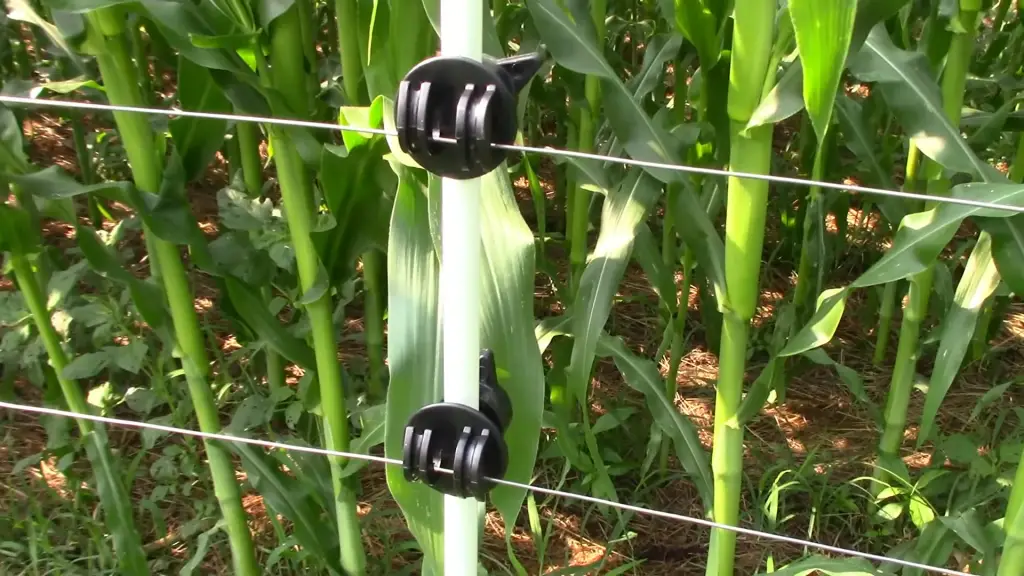
There are a few things to keep in mind if you’re considering an electric fence. First, make sure you choose a fence that is specifically designed to keep out raccoons. Second, be sure to follow the manufacturer’s instructions carefully when installing the fence. And finally, check the fence regularly to ensure it is functioning properly and that there are no gaps or holes that raccoons could squeeze through. [1]
Clean your garden regularly
If you have a garden with a raccoon problem, it’s even more important to keep it clean and free of debris. This means picking up any fallen fruit or vegetables, as well as removing any garbage or debris that might attract raccoons.
Trim back any overhanging branches that provide access to your roof or chimney. Raccoons often use these routes to get into attics or other parts of homes, so by eliminating their access points, you’ll also discourage them from being in your yard.
Pick up any fallen fruit from trees or bushes, as this is a major attractant for raccoons (and other animals). If you have a compost pile, it’s important to keep it covered as well. Raccoons love nothing more than a nice mound of rotting food, so if your compost is open and accessible, they’ll definitely be interested in checking it out.
In addition, you should also make sure to regularly clean up any pet waste in your yard. Raccoons are attracted to the smell of feces, so if there’s a lot of it around, they’re more likely to visit – and poop. [1]
Use traps
Obviously, one of the most effective ways to keep raccoons out of your yard is to use traps. There are a number of different types of traps available, so be sure to do some research to find the one that will work best for you. Once you have your trap set up, baited, and ready to go, all you need to do is wait for the raccoon to take the bait. When they do, the trap will spring shut and capture them. You can then release the raccoon far away from your property where it will not be able to return.
Just be sure to check your local laws before setting any type of trap, as there may be restrictions on what type of trap you can use! [2]
Call pest control
If you have a heavy raccoon problem in your yard, the best thing you can do is to call pest control. Pest control companies have the experience and expertise to deal with raccoons safely and effectively. They will also be able to advise you on how to prevent raccoons from returning in the future.
Just like we mentioned, in most cases, it may be necessary to trap and remove the raccoons yourself. If this is the case, be sure to follow all safety precautions and contact your local wildlife agency for guidance.
FAQ
What smell does a raccoon hate?
Raccoons have a keen sense of smell and are very sensitive to certain smells. There are a few different smells that raccoons hate, including peppermint oil, ammonia, vinegar, and mothballs.
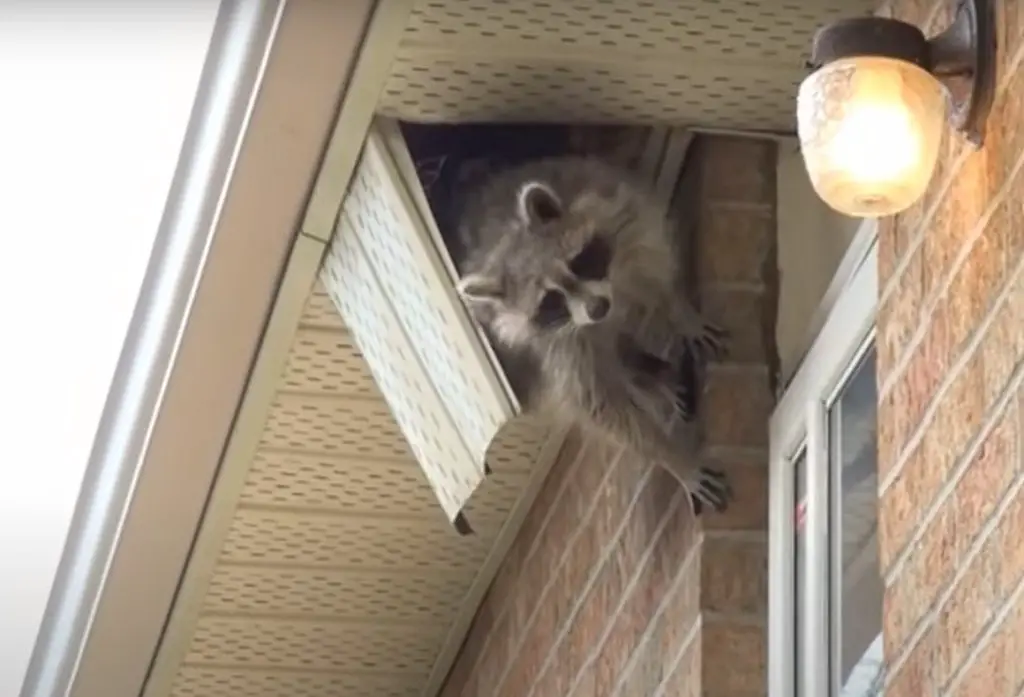
You can use any of these smells to deter raccoons from pooping in your yard. Simply place a few drops of the oil or vinegar on some cotton balls and put them around the perimeter of your yard. The smell will keep the raccoons away and they won’t be able to poop in your yard anymore!
Do raccoons poop in the same spot?
Raccoons are creatures of habit and will often return to the same spot to relieve themselves. If you have noticed a raccoon repeatedly pooping in your yard, it is likely that this is its designated latrine.
How do you stop raccoons from pooping?
The best way to stop raccoons from pooping in your yard is to make sure there is nothing attracting them in the first place. This means removing any food sources, such as garbage cans or pet food dishes, and sealing up any openings in your home or garage. If you have a pool, make sure it is covered when not in use. You can also try using motion-activated sprinklers or lights to deter raccoons. Finally, consider trapping and relocating the animals if all else fails.
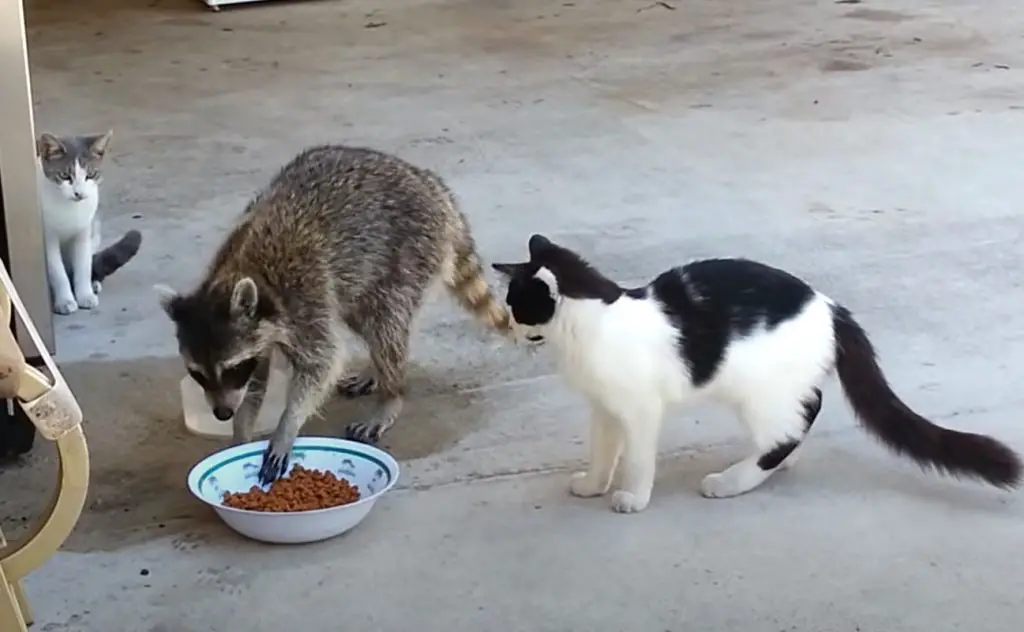
What scent will keep raccoons away?
There is no definitive answer, as different raccoons will have different preferences. However, some common scents that are known to deter raccoons include ammonia, vinegar, garlic, mothballs, and chili peppers.
Another method is to try and mask the scent of their food sources. If you know what the raccoon is eating, try sprinkling some of that around your yard as a deterrent. For example, if they’re eating grubs, sprinkle some diatomaceous earth around where they dig.
Useful Video: How to keep Raccoons off your patio furniture in the backyard for good?
Conclusion
No one likes having to deal with a raccoon infestation, but it’s important to remember that these creatures are just doing what comes naturally to them. With a little patience and the right strategy, you can get rid of the problem for good. One way to keep raccoons out of your yard is to make it less inviting. Raccoons are attracted to areas that offer food, water, and shelter. So, if you eliminate these attractants from your yard, raccoons will have no reason to visit. You can also utilize natural repellents, such as predator urine or essential oils, to keep raccoons away. Lastly, if you have a persistent problem with raccoons, you may need to trap and remove them from your property.
If you have any other tips or tricks on how to stop raccoons from pooping in your yard, be sure to share them in the comments below! And as always, if you’re having trouble dealing with a raccoon issue, feel free to contact a professional wildlife control operator in your area. They’ll be able to help you out and get rid of those pesky critters for good! Thanks for reading!
References:
- https://www.gardeners.com/how-to/raccoon/5460.html
- https://animalkooky.com/stop-raccoons-pooping-in-yard/
- https://www.almanac.com/pest/raccoons
- https://busybackyard.com/how-stop-raccoons-from-pooping-in-yard/
- https://www.applepestcontrol.com/4-natural-raccoon-deterrents/





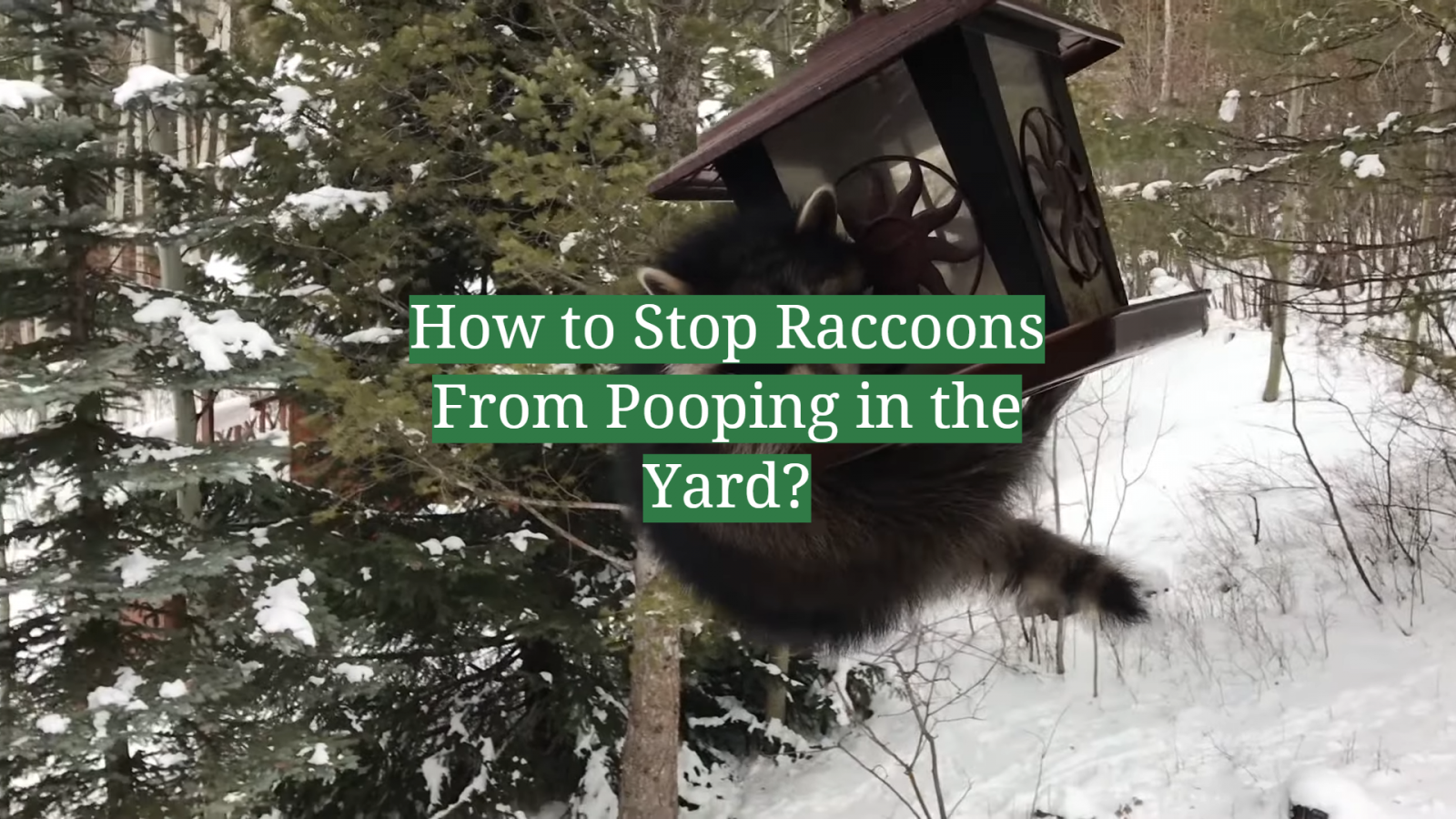
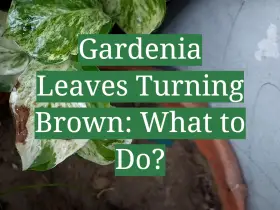


Leave a Reply
View Comments